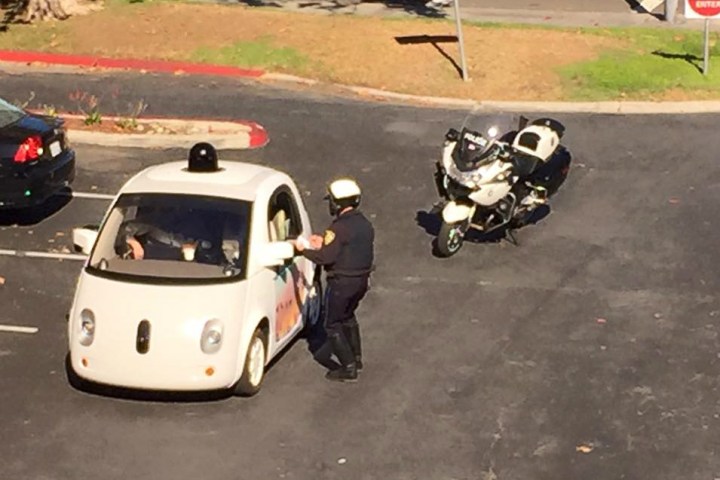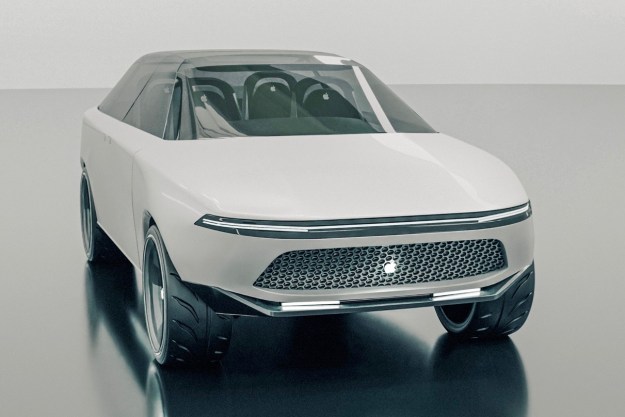
But no. It was actually stopped for going too slow. That’s right, a Mountain View traffic cop this week spotted the cute little pod puttering along the street at a speed presumably not much faster than a granny walking a dog, and decided to have a word.
Facebook user Zandr Milewski, who watched the incident unfold (presumably at a snail’s pace), grabbed a shot of the officer beside what looks like a cartoon cop car but is actually one of Google’s self-driving motors (incidentally, that dome on top contains some of the car’s all-important sensors).
After Milewski posted the amusing picture on the social networking site, the Mountain View Police Department confirmed the incident, explaining that one of its traffic cops had “noticed traffic backing up behind a slow moving car,” and as a consequence decided to pull it over.
“As the officer approached [it] he realized it was a Google Autonomous Vehicle,” the statement said, adding, “The officer stopped the car and made contact with the operators to learn more about how the car was choosing speeds along certain roadways and to educate the operators about impeding traffic.”
Meanwhile, Google, too, decided to milk the incident for all it’s worth, jumping online to say that “after 1.2 million miles of autonomous driving (that’s the human equivalent of 90 years of driving experience), we’re proud to say we’ve never been ticketed,” suggesting the Googler cooped up in the car managed to convince the cop that moving at a crawl was sensible under the circumstances, even if it did rile the drivers stuck behind it.
While admitting that it must be pretty rare to get pulled over for driving too slowly, Google explained that for safety reasons it’d decided to cap the speed of its prototype car at 25 mph.
“We want them to feel friendly and approachable, rather than zooming scarily through neighborhood streets,” the message said, adding, “Like this officer, people sometimes flag us down when they want to know more about our project.”
Google is currently testing its self-driving technology using 21 pod-like prototype cars on the roads around its Mountain View headquarters, with a further four tootling about the streets of Austin, Texas. It also has 23 Lexus SUVs on the road using some of the gear.
Traveling so slowly, you might think there’d be a few rear-endings involving Google’s self-driving cars, but data released by the company shows that over the last two months all of its vehicles have avoided such an incident, or any kind of accident for that matter.
Editors' Recommendations
- Tesla Autopilot vs. full self-driving: What’s the difference?
- Dubai Police to deploy driverless patrol cars with AI smarts
- An autonomous car in San Francisco got stuck in wet concrete
- Autonomous cars confused by San Francisco’s fog
- Is Tesla Full Self-Driving worth it?


